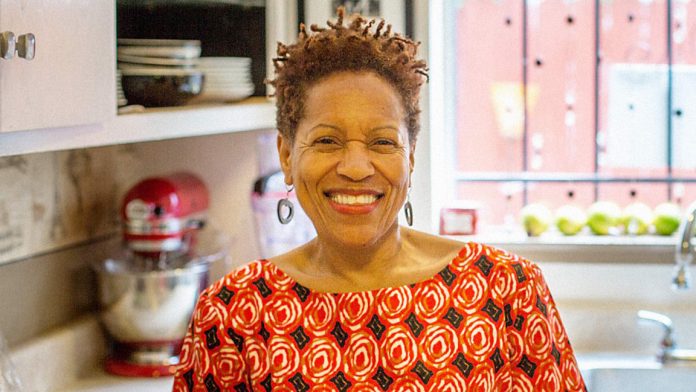by SARAH KESSLER, Fast Company, September 19, 2019
The Food-Sharing Economy Is Delicious And Illegal–Will It Survive?
Renee McGhee, a 59-year-old grandmother of nine, was at home recuperating from a bicycle accident when she opened her neighborhood newsletter and saw an advertisement for home-cooked meals. A few clicks later, she learned that the neighbor who posted it had joined Josephine, an online marketplace that helps home cooks coordinate small takeout-food businesses.
After breaking bones in both hands, she’d crossed anything like that job off of her list of potential employment options, but cooking for Josephine sounded like a way to pay her rent once the disability payments stopped–work she could do at home while she babysat her grandkids.
They inspected her kitchen using a checklist: Did she keep all food six inches above the ground? Was her refrigerator set at the correct temperature? Did she have a California Food Handler Card? Josephine, she learned, provided training, advertising, and insurance for up to $1 million in liability. Everything seemed too good to be true. “I said, let’s just cut to the chase,” she remembers, ”What is it going to cost me to be able to do this?” Josephine would take 10% of her sales, they said.
“They would just pass before,” she says, “and now they were coming into my home and having conversations.” One 79-year-old customer walked from six blocks away to pick up her meals. Another woman drove from Emeryville, usually arriving 30 minutes before the serving window, at 4:45, so she could “beat the traffic.” A friendly couple regularly showed up with a bottle of wine to share. “It was like family,” McGhee says.
Two men on her stoop explained that they were from the health department. Making and selling food from her home, they said, was illegal and punishable by a fine.
Most states–with some exceptions for baked goods, granola, and other “non-potentially hazardous” products–require that food sold to the public be cooked in a commercial kitchen.
Analysis: This article highlights the impact food can have on a community. It’s a shame that the government prevents these activities. I understand the importance of sanitation, but it seems to me that this exchange tightens communities and gives an opportunity for people out of work. The exchange of food in this fashion is a practice done by generations, and the government should be working with these communities instead of barring activities that benefit them.




